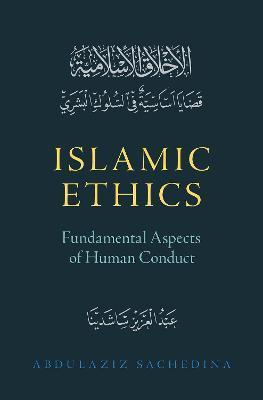Islamic Ethics: Fundamental Aspects of Human Conduct

Islamic Ethics: Fundamental Aspects of Human Conduct
juridical ethics is an important, even dominant form of ethics in modern Islam. He notes that this form of ethics has been challenged by modernity and examines the variety of ways in which legal ethical thinkers have reacted. How do Muslim religious leaders come to grips with modern demands of directing their communities to live as modern citizens of nation-states? What kind of moral and spiritual resources are being garnered by their scholars to respond to the new issues in sciences, more immediately in medicine, and constantly changing social relationships? To answer these pressing questions, it is necessary to go beyond the philosophical ethics of virtue and human character and acknowledge the importance of ethics to the formulation in Muslim interpretive jurisprudence of religious and moral decisions that are based on reason and revelation.
PRP: 431.84 Lei
Acesta este Pretul Recomandat de Producator. Pretul de vanzare al produsului este afisat mai jos.
388.66Lei
388.66Lei
431.84 LeiLivrare in 2-4 saptamani
Descrierea produsului
juridical ethics is an important, even dominant form of ethics in modern Islam. He notes that this form of ethics has been challenged by modernity and examines the variety of ways in which legal ethical thinkers have reacted. How do Muslim religious leaders come to grips with modern demands of directing their communities to live as modern citizens of nation-states? What kind of moral and spiritual resources are being garnered by their scholars to respond to the new issues in sciences, more immediately in medicine, and constantly changing social relationships? To answer these pressing questions, it is necessary to go beyond the philosophical ethics of virtue and human character and acknowledge the importance of ethics to the formulation in Muslim interpretive jurisprudence of religious and moral decisions that are based on reason and revelation.
Detaliile produsului








